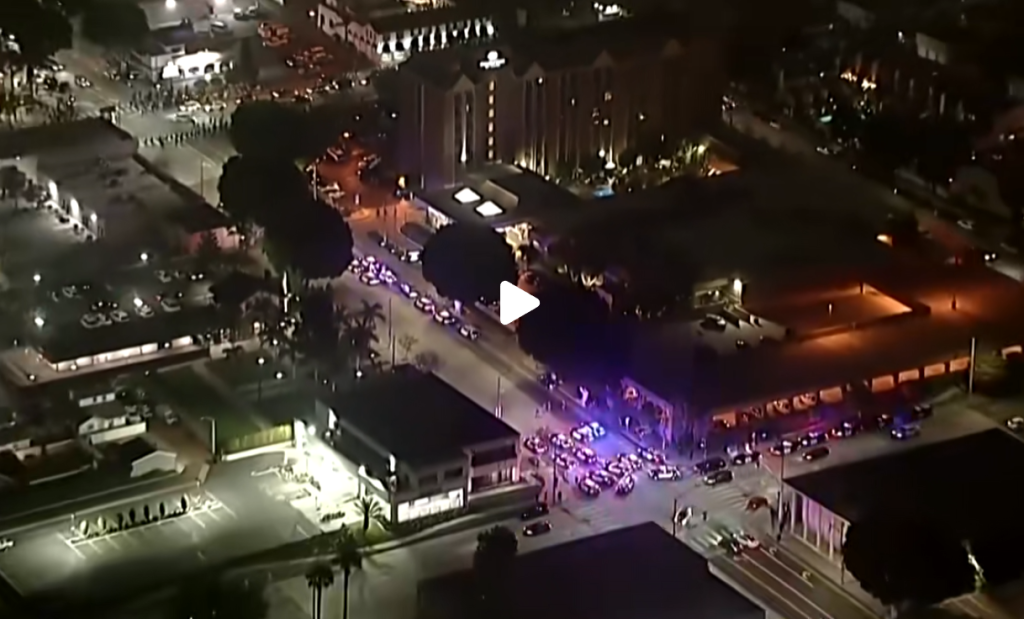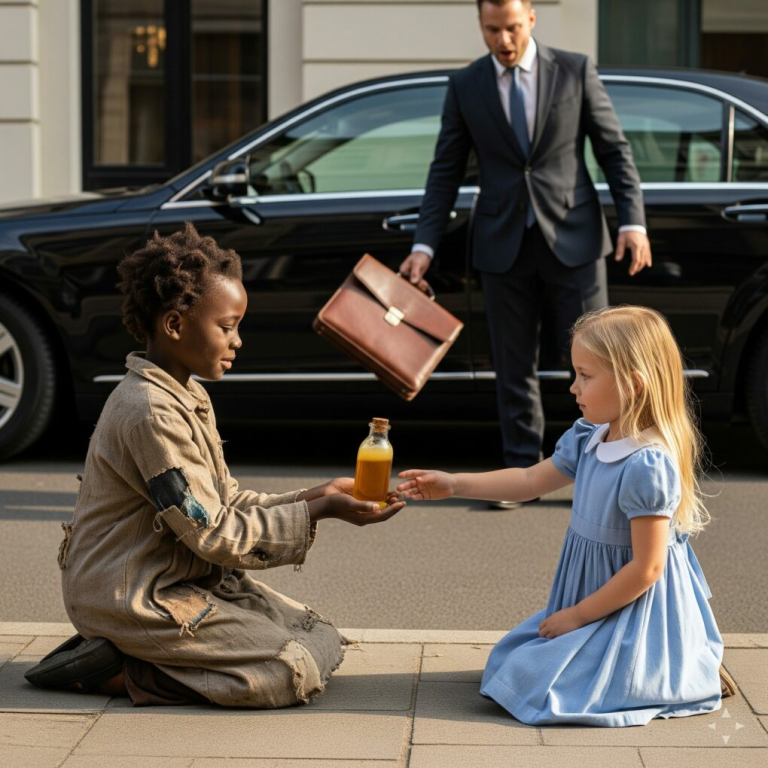
The clanging of pots and pans. The steady thud of beating drums. The honking of passing cars with waving flags sticking out of the window. Bands playing traditional Mexican songs. Speakers shouting into megaphones. Chants coming from dozens of people.
All unfolding into the middle of the night outside the Home2 Suites by Hilton in Montebello, California, in late June.
The goal of this latest protest? Make as much noise as possible to try and keep U.S. Immigration and Customs Enforcement officers from sleeping and force them elsewhere.
“They were just making noise, playing music, and some people were dancing,” said Verita Topete, a leader of the immigration committee with Centro CSO, who took part in the protest. “A lot of people were holding signs saying, ‘ICE is not welcome here.’”
She said she arrived by 8:30 p.m. on June 20, and before she knew it, a crowd began to show up on the sidewalk outside the hotel.
By 10 p.m., dozens more protesters joined the group, and they didn’t disperse until 3 a.m. Topete said that the next day, they returned with enough people to take over the two-lane street to block people from going into the front of the hotel.
The protests were part of a nightly “No Sleep for ICE” campaign in and around Los Angeles County, where protesters gather outside the hotels where ICE agents are staying and make noise to put pressure on the hotel staff to kick ICE out and prevent agents from sleeping.
Topete said the protest is important “to apply pressure and let city and state officials know that we don’t agree with this” at a time when “ICE agents are hunting down our working class community members as if they’re criminals, throwing them to the pavement and taking them away from their workplaces.”
During the second night in Montebello, Topete said a band showed up with drums and guitars and many people were dancing to traditional Mexican songs like “Caballo Dorado” and “La Chona.” Others attended with their families. While most people were on foot, others passed by in their cars, waving Mexican flags and honking their horns.
“It was a very peaceful protest, just very noisy,” she said.
An ICE spokesperson pushed back on the protests when asked for comment about the demonstrations outside of hotels.
“This violence is fueled by a disinformation campaign, which includes dangerous rhetoric by local elected officials,” the ICE spokesperson said. “Our brave officers are out there every day enforcing the laws set by Congress, removing public safety threats from communities.”
A spokesperson for Hilton Hotels did not return a request for comment.
Noise protests first began in early June
Other noise protests include one on June 8, two days after ICE began its raids in Los Angeles. Community members rallied outside the AC Hotel in Pasadena, about 10 miles from Los Angeles, to protest ICE agents’ staying there. Hundreds of people had shown up outside the hotel in the early afternoon after a photo of ICE vehicles parked outside the hotel circulated on local group chats and social media pages.
When some of the first protesters arrived, they learned that many of the hotel workers had left in fear. They chanted “Chinga la Migra” and “Fuera ICE,” and by the evening, the agents were kicked out of the hotel. Since then, protesters have continued rallying together outside hotels every night.
“The point is to drive ICE out of these hotels, and make their existence impossible here,” said Andrew Guerrero, a law student at the University of California, Los Angeles and PhD candidate at Harvard University. “We don’t want them to be able to access these amenities. We don’t want our local neighborhoods to be harboring what a lot of us consider kidnappers.”
Guerrero said he has attended multiple protests outside hotels in Los Angeles County, including ones in Hacienda Heights, Downey, Long Beach and Montebello. He said the protests “let it be known that they cannot sleep peacefully when they’re in our neighborhoods.”
He attended a protest outside the Hilton in Montebello the day before Topete. When he got there around 11 p.m., he said there were already dozens of people, significantly larger than some of the other hotel protests he had been to. He said he brought pots and pans, a speaker, and a case of water for the protesters.







